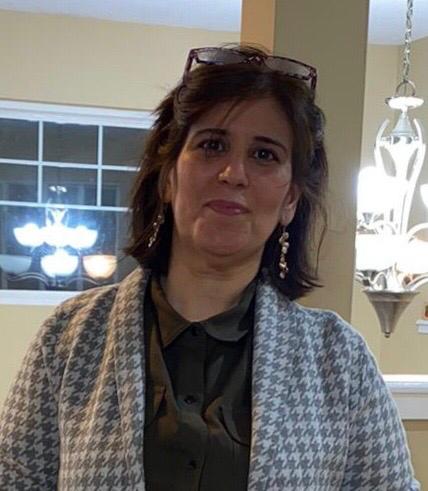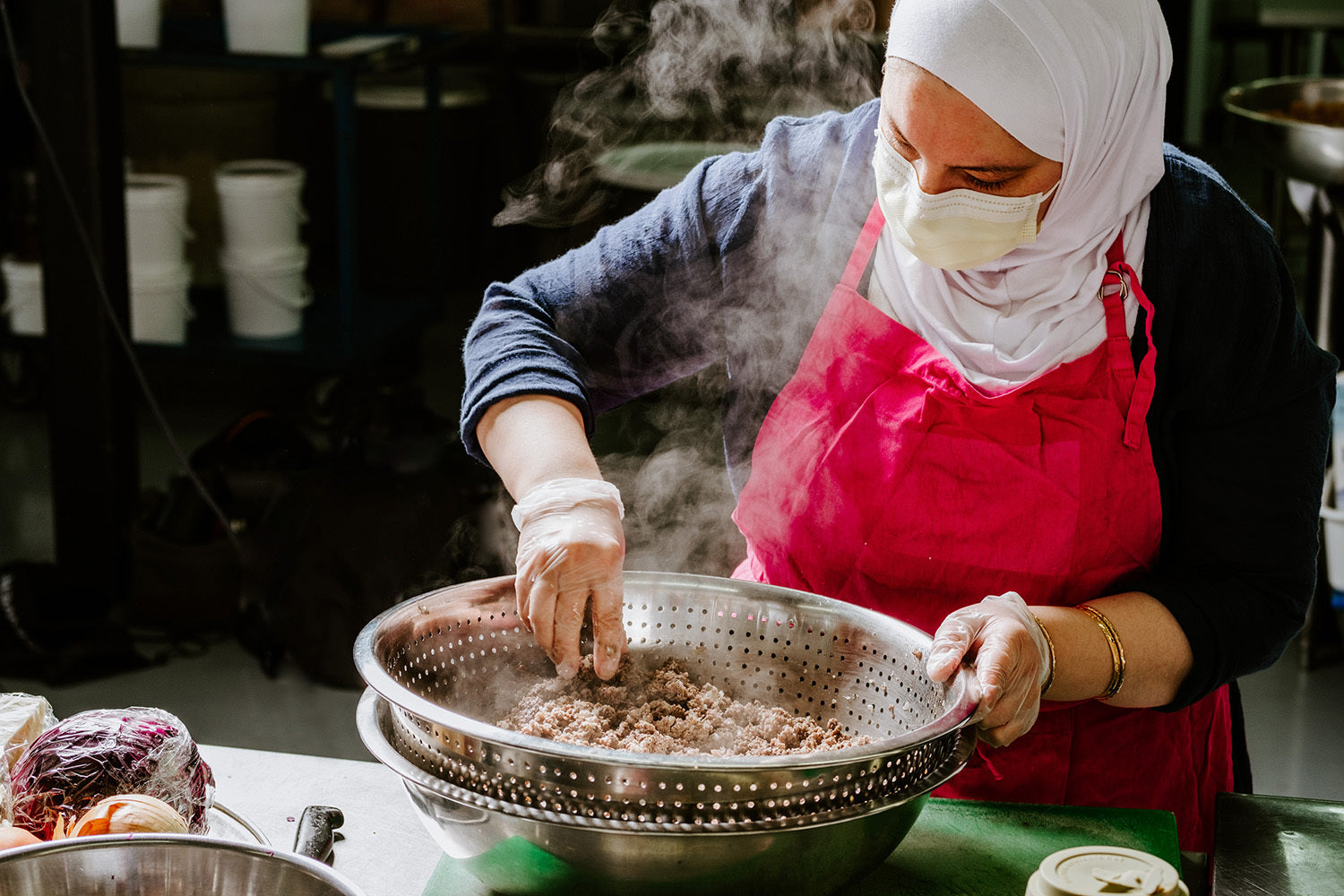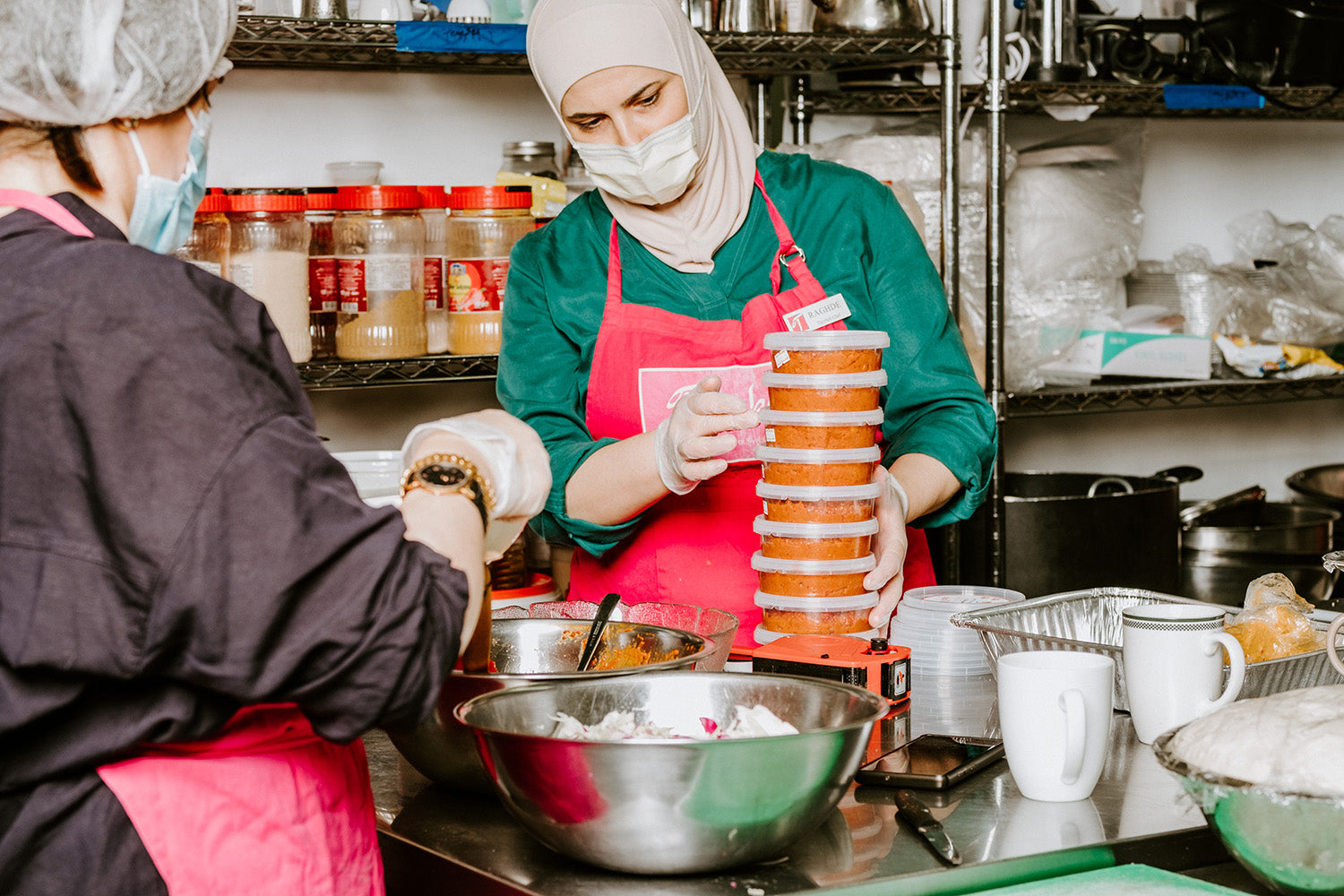This week, we are bringing you a Q&A with one of our chefs, Enas Abo Sen, who travelled to Canada from Damascus with her husband and children.

Can you describe what your life in Syria was like before the war, and what you miss most about it?
Life was beautiful in the presence of my family, my husband and my children. I had simple dreams that my husband would be cured (he had cancer) and together we could watch our children grow up. The presence and the support of my family and neighbours gave me strength and hope.
Until the beginning of the war, I would always pray that I would continue to be successful in my tasks of managing the household and family matters.
How did you feel during your first weeks and months in Canada?
Canada is a beautiful country, the country of the four seasons and nice people. I slowly got used to our new life here away from my family, my people and my neighbours.
It’s very difficult to move to a new country without any roots, family or immediate job prospects at hand. How did you navigate this period and come out the other side smiling?
I started thinking about work when I met Chef Hasna at events with Canadian institutions that care about refugee affairs. Through Chef Hasna I met Nihal, and I was accepted with the Tayybeh team. Now the Tayybeh team are my family in Canada.
Food is a very central part of Middle Eastern culture. How does Canadian food culture differ from this, and how are you helping to introduce a more people-centric approach to Canadian mealtimes through your work with Tayybeh?
Damascus (my hometown) is the oldest city in the world, and its civilization spans thousands of years. I always hope that the people can learn about different cultures, including cooking, customs and traditions. Through Tayybeh I hope the world gets to know and enjoy Syrian cuisine and culture.
What is your favourite dish to make?
I like making sweets, like Sewara El Sit, Baklava, Harissa Nabakia, and various pastries.
What would you say sets Syrian food apart from other Middle Eastern cuisines?
Syria is an ancient country with a mix of many different cultures. Syrian cuisine has some elements of Turkish food due to the Ottoman occupation of Syria, the French food influence also comes from the French occupation. It was the mixed culture of the neighbouring countries that helped Syrian cuisine become incredibly diverse and to include gluten-free, vegetarian and vegan dishes.
If you could only cook with one ingredient, what would it be and why?
For me, flour is the most important ingredient as I am very passionate about baking, making pastries and sweets.




Leave a comment
All comments are moderated before being published.
This site is protected by hCaptcha and the hCaptcha Privacy Policy and Terms of Service apply.